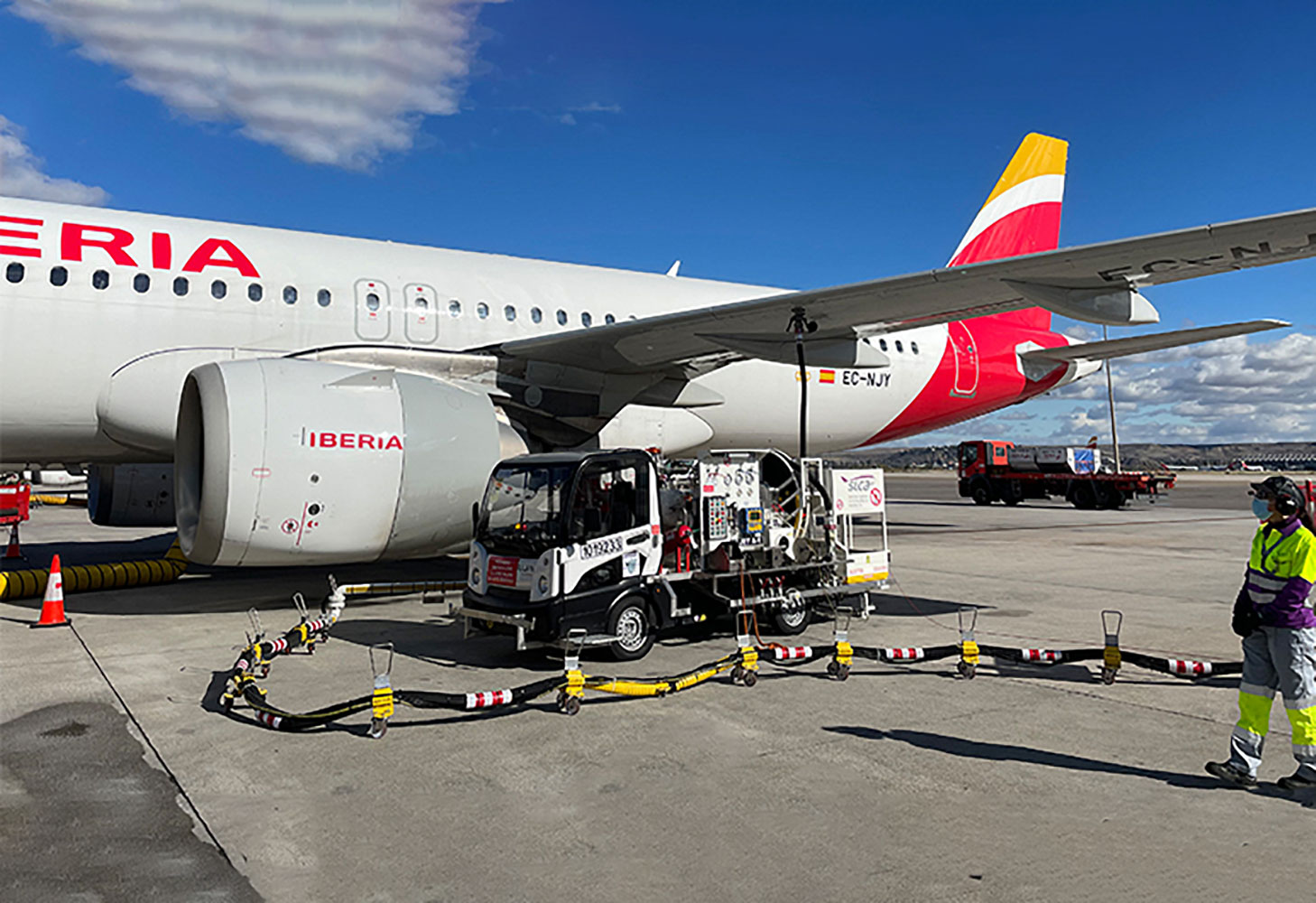
Repsol and Iberia complete first flight using SAF from waste
Repsol and Iberia have completed the Madrid–Bilbao route with sustainable aviation fuel produced from waste at Repsol’s Petronor Industrial Complex in Spain. The flight was operated with an Iberia Airbus A320neo, one of the Spanish airline company’s most efficient aircrafts.
The low-carbon footprint flight is a further step towards the decarbonization of the aviation sector. It has resulted in a reduction in emissions of 1.4 tons of carbon dioxide (CO2).
The scheduled flight IB 426 was operated with an Airbus A320neo aircraft of the Spanish airline, with a capacity of 180 passengers and currently one of the most efficient aircrafts in the world. Equipped with Leap-1st CFM engines, Iberia’s A320neo aircrafts reduce noise by 50% and are more environmentally friendly, emitting 5,000 tons of CO2 less per year and 50% less NOx. The flight also performed more efficiently through a flight operation that improves fuel efficiency by reaching the optimum altitude level in the climb and descent phases.
In addition, a zero-emissions electric-powered aviation fuel supply vehicle was used for refueling. All ground operations (loading and unloading of baggage, assistance to the aircraft, and towing to the runway) used the most efficient vehicles that Iberia Airport Services has deployed throughout its network of airports in Spain, such as the mototok, an advanced electric vehicle controlled by remote control to perform the push back maneuver to the aircraft. On board, Iberia is also testing different packaging solutions to replace single-use plastics.
The batch of jet biofuel used is the third manufactured by Repsol and the first on the Spanish market produced from waste as raw material. The Spanish energy company thus integrates circular economy instruments in the process, transforming waste into high added-value products such as low carbon footprint fuels. Two previous batches were produced from biomass at Repsol’s industrial complexes in Puertollano and Tarragona.
First initiative in collaboration agreement
This is the first initiative arising from the collaboration agreement towards a more sustainable mobility signed by Repsol and Iberia last July, which includes the development of low-carbon aviation fuels.
In this operation, Iberia and REPSOL have counted with the participation of Aena that works collaboratively with the different agents to promote the global decarbonization of the air transport sector. It supports this initiative by also working on collaborative projects to promote the production of sustainable fuels, with the aim of encouraging its use by airlines.
The aviation sector is moving decisively towards decarbonization through the use of biofuels. The International Air Transport Association (IATA) has set itself the target of zero carbon emissions growth from 2020, for which it is developing various initiatives. Among these, the use of different sustainable fuels, such as biofuels and advanced biofuels produced from waste, stands out for its high contribution to the reduction of CO2 emissions.
On July 14, the European Commission presented the Fit for 55 package, which includes the RefuelEU Aviation initiative. Its aim is to boost the supply and demand of sustainable aviation fuels in the European Union, reaching a use of 2% in 2025, 5% in 2030, and 63% in 2050. In this way, the environmental footprint of aviation will be reduced, while contributing to the achievement of the European Union’s climate targets.
Repsol is a pioneer in the manufacture of sustainable aviation fuels (SAF) in Spain. With the production of these fuels in its industrial complexes, it is anticipating the different measures that EU institutions are establishing to promote the use of sustainable aviation fuels. In this sense, both sustainable aviation obtained from biomass and advanced biofuels from waste are included in the list of sustainable fuels in the European Renewable Energy Directive (RED).














